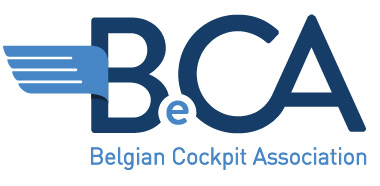Brussels Airlines

Brussels Airlines, commonly called “b.air” by its pilots, was created in 2006 when SN Brussels Airlines (SNBA) and Virgin Express (VEX) merged.
SNBA was created in 2002, in the aftermath of the Sabena bankruptcy. It used the AOC and the fleet of British Aerospace BAe-146 and Avros of the former Sabena regional airline Delta Air Transport (DAT). SNBA later added 3 Airbus A319 and 3 Airbus A330 inherited from Birdy Airlines. VEX
VEX started operations under the Virgin Express brand when Sir Richard Branson acquired Euro Belgian Airlines (EBA), the oldest low-cost operator in continental Europe. VEX had a fleet of Boeing B737-300 and -400 operating charter flights for Neckermann and scheduled flights on behalf of Sabena.
The first years of b.air saw the streamlining of the operations and the integration of the 2 pilot groups in a common seniority list. The B737, BAe-146, and Avro were gradually phased out and replaced by Airbus A319 and A320. The Long Haul fleet also grew and now comprises 9 Airbus A330-300.
Some keystones in the history of the company :
In 2008, the Lufthansa Group bought 45% of Brussels Airlines, with the option to acquire the remaining shares later. Brussels Airlines joined Star Alliance in 2009.
Since its creation in 2006, b.air has been struggling to make profit. The implementation of the “Beyond 2012” cost-cutting plan led to the acquisition of the remaining shares of the company by the Lufthansa group. A second plan, “Reboot”, was on the negotiation table when the company was hit by the corona crisis. Operations were suspended for several months and the restart was only possible thanks to the financial commitment of the Lufthansa Group and a 300 Mio EUR state loan, which has already been repaid to the Belgian State. Conditional to this financial support was the acceptance of the “Reboot+” new plan. The plan included the forced retirement of older colleagues, new salary cuts, and the implementation of a cafeteria plan. The ambition of the company is a return to profit next year.
The current fleet comprises 18 A319, 14 A320, and 9 A330-300. 3 A320 NEOs will also be introduced in the coming months. Destinations include destinations in Europe, 17 in Sub-Saharan Africa, and 2 in the USA.

